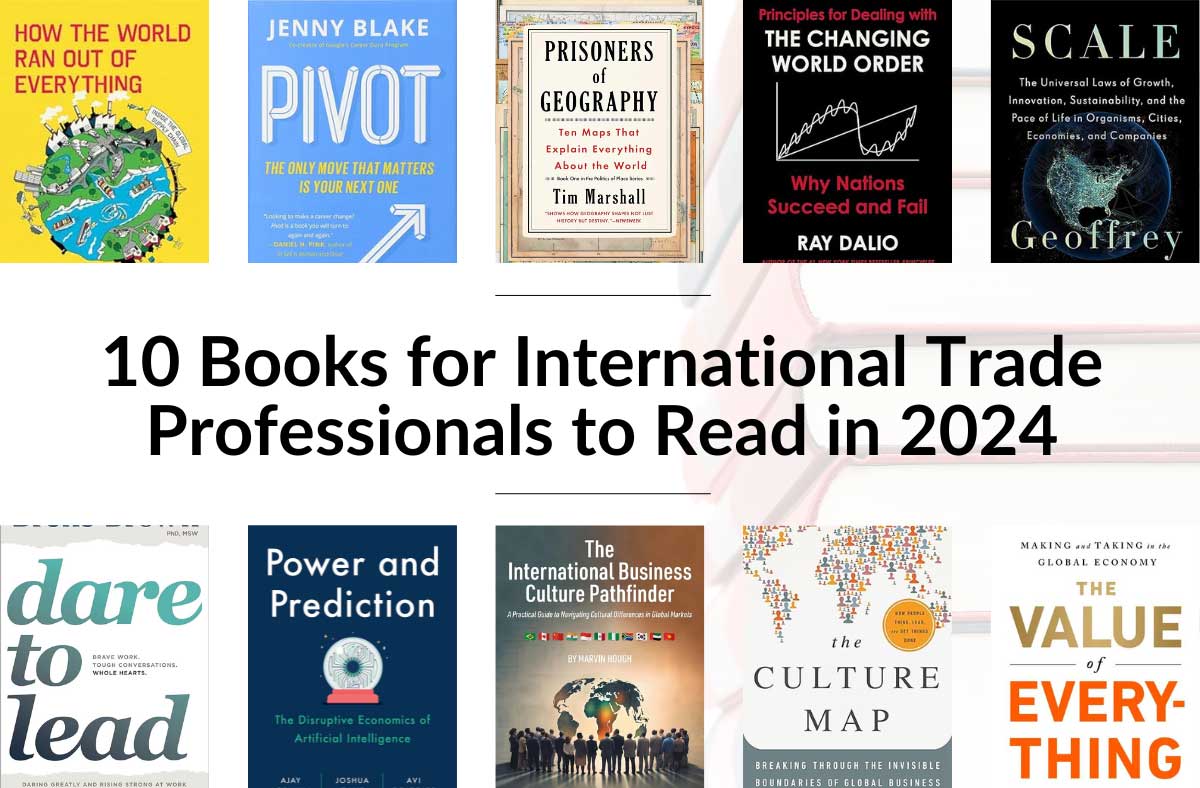
In our current trade environment, trade wars will increase costs to the consumer, and the risks for employers, shareholders and employees of cross-border businesses. However, what will remain unchanged will be Canada’s need to generate our standard of living through success in the global marketplace. Current customers need to be retained and new ones found. Input cost changes will require significant creativity to preserve trade flows and margins.
Canadian politicians and economists have been talking for a very long time about our over-dependence on the U.S. market and the need to diversify. The diversification message coming from the Canadian government to businesses today has a special note of urgency, reflecting the risks which are being added seemingly daily for cross-border businesses.
And there’s been all kinds of attempts over the years to encourage Canadian companies to look elsewhere. Well, now you have a circumstance in which our best market, the United States, may become less attractive as a place to do business. This should provide Canadian corporations with an opportunity to reassess where else in the world their products can be marketed, products and services.
Companies can’t diversify their global markets without the right tools
We’ve got to turn this to our advantage. This is a real moment in time for Canadian trade and organizations striving to do cross-border business.
We know that knowledge preserves margins. Knowledge is power in all human activities, but particularly so in international trade. Market intelligence translates directly into market power. Value-added exports create higher margins the closer the producer gets to the customer. Availability of information is therefore critical to export growth, sustainability and job growth in a supplier’s jurisdiction.
The Forum for International Trade Training (FITT) and Export Development Canada (EDC) are heavily involved in efforts to grow the number of small businesses taking advantage of opportunities in the global marketplace through upskilling and building international business know-how.
As more people take FITTskills courses, their businesses will be increasingly prepared to make the risk calculations necessary to do the business and preserve their margins.
But this is also the perfect opportunity to refocus the way trade promotion services (TPO), such as the Canadian Trade Commissioner Service and private sector advisors, have been relating to their client base.
Trade promotion organisations and advisors need to give businesses what they really need – qualified leads
Look to TPOs like Saskatchewan Trade and Export Partnership, who are doing it right! Their number one deliverable to their Saskatchewan member companies are qualified trade leads.
Provide the qualified international leads to local businesses that are prepared and interested in doing a transaction. This is very difficult work. It’s far easier to do a speech to a chamber of commerce talking about how the GDP in Costa Rica has gone up 6.4% last year. Frankly, businesses don’t care about that. What they care about is who in Costa Rica is buying what I’m selling.
When I was an ambassador to the Philippines, we had the Asian financial crisis in ’97-’98. I went to a meeting of our ambassadors from around Southeast Asia and many people were despondent that the region would no longer be a priority market for Canada. I asked, “What’s the problem? Indonesia hasn’t stopped. Imports haven’t stopped. There may be fewer customers now, but go and identify some new ones.”
These guys were all tied in up in the idea that if you’re not a priority market, then you’re not quite as good. We don’t need priority markets. Canadian business needs customers and partners.
Serving businesses by thinking like one
Trade advisors and trade promotion services need to think more like the small businesses they serve and less like economists.
A major impact of the internet has been the facilitation of direct connection between buyers and sellers all over the world. Thanks to cyberspace, more customers are now in touch with more suppliers than ever before. A larger portion of Canadian companies became active and successful in international trade through the receipt of an unsolicited request for their product than you might think. One day, somehow, somebody heard about their product who wasn’t in Canada, and they became “accidental exporters.”
So, rather than establishing and promoting priority markets and sectors, TPOs and advisors’ priorities should instead concentrate on the selection of strategic services that will be offered to any qualified client.
Let’s leverage our assets to mitigate common exporter challenges
Classic trade promotion programs remain very important to the success of national economies in the global marketplace. Focused, targeted offshore marketing strategies work well. If exporters are to sell on something more than price, quality must be anticipated by a customer before it is experienced.
Similar challenges face exporters in every country:
- Need for a healthy and growing customer base
- An absence of support organizations in their communities
- Need to understand new markets, domestic and foreign
- Lack of skilled international trade practitioners in the economy
- Shortage of time to pursue opportunities over the horizon
- Low level of understanding in the community of how integrated local business has become in the international economy
We have the assets to facilitate global business:
- Young, highly educated professionals whose talents are at a global standard
- Access to the internet and global television news
- Access to global support organizations ex: logistics, standards, design, etc.
- Access to telecommunications and air connections enabling anyone to be anywhere in a day
- Access to public resources devoted to economic development initiatives (international and domestic public sector resources)
Public sector resources devoted to addressing these challenges, or capitalizing on these assets tend to be wasted when trade advisors endeavour to determine, rather than facilitate, the direction of the economy. The role of government advisors should be to leverage the efforts of the business community. Best practice dictates, therefore, that all advisors and service providers both public and private should apply resources to save the exporter time and effort.
Measures of success for trade advisors
Without the effective intervention of TPOs and advisors, business will still happen. But exporters, particularly SMES and those new to cross-border business, will be less equipped to handle challenges in the global marketplace, and will yield margins to someone in the process (customers, agents, or distributors).
How can TPOs and advisors measure success in their efforts to equip businesses to go global? Focus on the creation and impact of deliverables. For example:
- Capture the number and measure impact of qualified business leads to client companies
- Measure the number, and impact on corporate behaviour, of market research reports
- Track the retention and growth of the TPO or consultant’s client base
- Track client participation in trade fairs, missions, conferences and other events and document feedback
These are relatively simple measures, but they are effective. The challenge is to demonstrate real value to SMEs who have the potential to become clients and, in turn, successful exporters.
Help for business new to trade
Another challenge SMEs and organizations new to trade face is the overwhelming number of public and private organizations offering solutions. How do they know where to go? Overlap, duplication, scattering of resources and ignoring real areas of need are all too common within these organizations. Emphasis must be placed on cooperation and coordination between agencies focusing on economic development and reducing anxiety at early stages of development.
The key driver in the domestic and international support networks can and must be the TPOs and export advisors. They are in a unique position to:
- Create and drive the vision behind the national export strategy
- Make visible the current and potential impact on international trade on the economic wealth of the nation
- Identify and build the trade support networks which serve the needs of exporters
- Translate demand from the global marketplace into transactional market intelligence delivered to interested and active export companies
Trade advisors must lead the effort to create cross-border support networks that are driven by vision, designed by the private and public sectors, and guided by performance measures. The measures chosen have to impact the daily work of all involved.
The unfortunate truth is that no trade agreement ever created a direct job, except perhaps for the negotiators. Jobs are created when suppliers identify and satisfy buyers or visa versa. The needs of business are universal: qualified business leads, competitive intelligence, contacts with key decision makers and data on technical standards.
Equipping exporters with the knowledge they need to qualify customers and understand the competitive forces at work the will translate directly to more success and the higher margins.







disqus comments